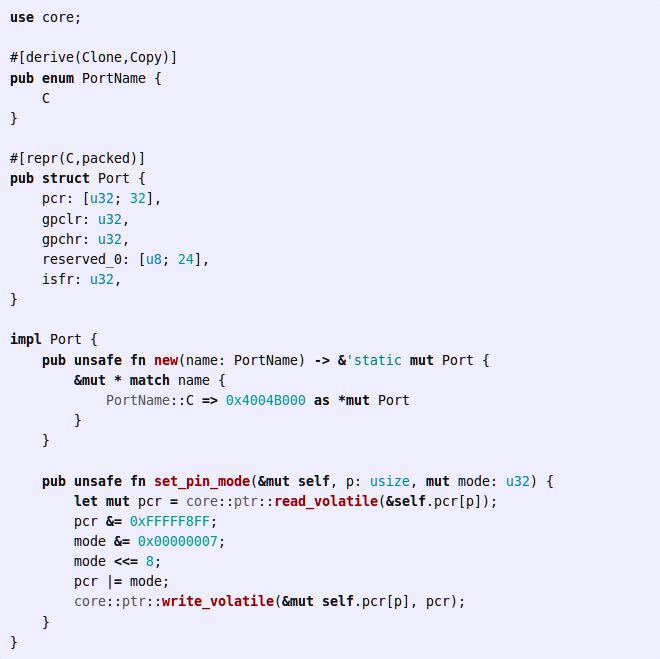

#Rust language want to take into manual
In C++ applications, there are often cases when manual freeing of memory isn’t considered in the code in advance, leading to memory leaks. Here is an example of why memory safety is such an important benefit of Rust application development. Plus, Rust doesn’t have a garbage collector (a tool for freeing application memory by gathering unused memory), which occupies much of the runtime in other programming languages like Java and C#. It also doesn’t require manual memory management.
#Rust language want to take into software
Rust software won’t have memory leaks, as it enforces an ownership model and the Resource Acquisition Is Initialization (RAII) concept. Thus, Rust applications are unlikely to fail in production, as their behavior is defined and predictable. Rust doesn’t have undefined behavior present in other programming languages that can be spotted only during production when it’s already late and costly to fix bugs. With Rust, you can be sure that if the code compiles, it’s correct and will work as planned. Let’s focus on these benefits and some more in detail to see how they can be advantageous for businesses.Ĭorrect and bug-free software. These are the three pillars of the Rust programming language that make it such a viable option. The possibility to build correct and bug-free software (96%).Rust benefits and why developers choose itĪccording to a recent Rust survey conducted among 9,354 Rust developers, here are the top reasons developers use Rust: In the next section, we consider these benefits in detail. We can see that lots of large and prominent companies are reaping lots of benefits from using Rust. Discord, a social platform for instant messaging and voice communication, switched from Go to Rust to avoid the latency spikes they used to experience with the Read States service.They also used Rust to create Pingora, an in-house HTTP proxy that serves over one trillion requests a day. Cloudflare, a content delivery network and provider of web security services, leverages Rust because the language offers WebAssembly support.The language is also used to develop some features of the brand’s file-syncing engine. Dropbox, a popular file hosting service, has written some of its core file storage components in Rust.When writing Stylo, the CSS engine in Firefox, developers were able to replace about 160,000 lines of C++ code with only 85,000 lines of Rust code. Graydon Hoare, the inventor of Rust, worked at Mozilla Research, and the company soon invested in the language and became its loyal supporter. Mozilla was the first company associated with Rust.

The adoption of Rust by huge tech companies is also inspiring: Around this programming language has gathered a strong community of developers who care about performance, memory and thread safety, and security. Rust also moved from 14th to 12th place in SlashData’s ranking of programming languages in just six months. SlashData has identified Rust as the fastest-growing language community. In the table below, you can see how dramatically the number of software developers interested in Rust development has grown.Īccording to State of the Developer Nation 22nd Edition by SlashData, the number of Rust developers increased from 600,000 in Q1 2020 to 2.2 million in Q1 2022. Growing popularity of Rust development services in numbersĪccording to Stackoverflow’s Annual Developer Surveys, Rust has been among the most wanted and loved programming languages for a few years. Finally, we consider how you can find and hire Rust developers to gain the most advantage for your business. We also cover when Rust web development can be the most beneficial and what Rust is good for. In this post, we discuss why Rust is so popular among developers and how this language has managed to win so much trust from the tech community in just a few years. The Rust Foundation aims at assuring the tech world that Rust is here to stay for years to come, as it’s proven a reliable and extremely useful programming language. In 2021, the Rust Foundation was established by Amazon, Google, Huawei, Microsoft, Mozilla, and other industry giants to support the language and its community. Immediately upon its release in 2015, the developer community accepted Rust and realized its potential and huge benefits compared to more widespread programming languages like C and C++. The language was initially developed by Graydon Hoare in 2006 and has been supported by Mozilla Firefox since 2009. The Rust programming language has been steadily evolving since 2010, but it was publicly released only in 2015.


 0 kommentar(er)
0 kommentar(er)
